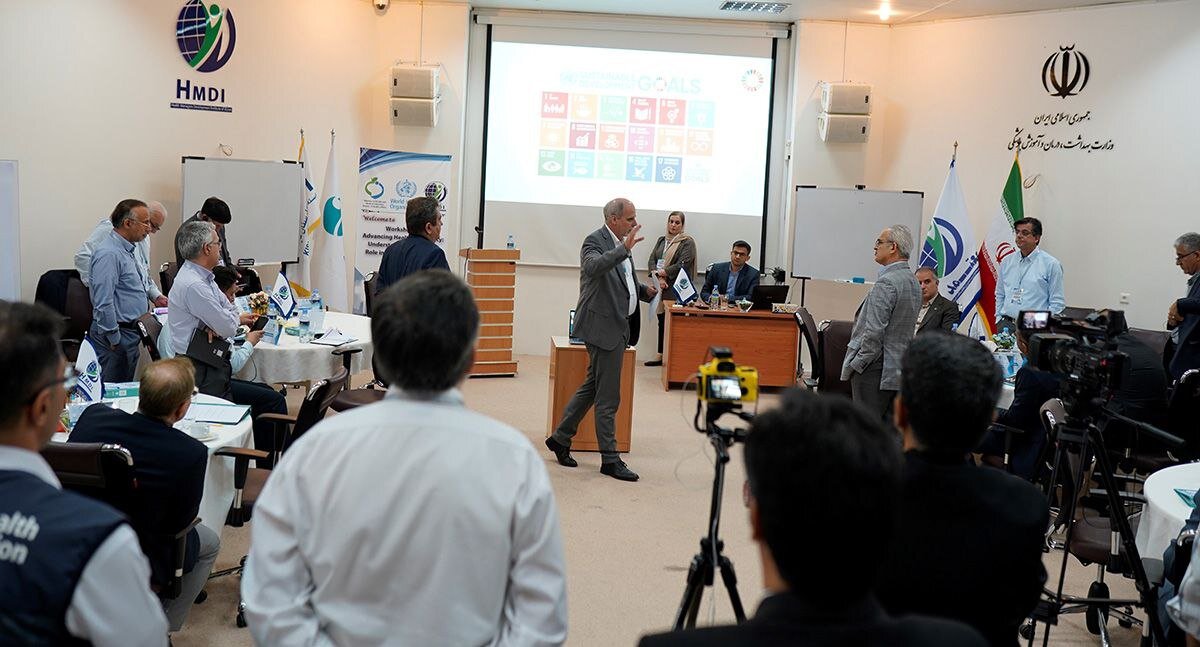Health diplomacy workshop explores WHO’s vital role in national, global health security

TEHRAN –A two-day workshop, titled ‘Advancing Health Diplomacy: Understanding the World Health Organization's Role in Global and National Health System’, was held in Tehran, bringing together key health leaders and policy-makers to deepen their understanding of health diplomacy.
As part of the 4th Health Diplomacy Seminar, Kish Island hosted the event from May 13 to 14 to underline the WHO’s vital role in global health security and the alignment of national priorities with the WHO’s global and regional strategies.
The seminar was organized by the health ministry, the World Health Organization (WHO) office in Iran, the Health Managers Development Institute, and the Health Diplomacy Research Centre at Iran University of Medical Sciences. The multistakeholder partnership underscored a shared commitment to strengthening health diplomacy and cooperation within the Region.
The event brought together key health leaders and policy-makers to deepen their understanding of health diplomacy and WHO’s contributions to global and national health frameworks; it also stressed the need for robust collaboration between WHO and national and subnational stakeholders.
The 43 attendees included chancellors of universities of medical sciences, vice-chancellors for public health from across the country and senior managers from the Ministry of Health and Medical Education’s headquarters.
WHO Representative and Head of Mission in the Islamic Republic of Iran Syed Jaffar Hussain, along with colleagues from the country office and Qaiser Pasha from the WHO Regional Office for the Eastern Mediterranean, delivered presentations on WHO’s role and governance at the national, regional and global levels. Discussions focused on enhancing participants’ understanding of WHO’s governance structure, functions and contributions to global health initiatives, including universal health coverage and the health-related Sustainable Development Goals (SDGs).
UN Resident Coordinator in Iran Stefan Priesner provided insights into the structure and global role of the United Nations. His presentation illuminated the broader context of the SDGs and highlighted Iran’s progress towards achieving these ambitious targets.
The WHO team addressed a range of topics, including a deep dive into SDG 3 (Good Health and Well-being), mechanisms for collaboration between WHO and other UN agencies, WHO’s direct contributions to the health-related SDGs, strategies for global pandemics and emergency response, opportunities for country engagement with WHO, the framework of the Country Cooperation Strategy and the overarching principles of WHO’s General Programme of Work. The sessions provided a comprehensive overview of WHO’s operational frameworks and strategic priorities.
During the closing ceremony, Minister of Health and Medical Education of the Islamic Republic of Iran Mohammad Reza Zafarghandi underlined the importance of health diplomacy, saying: “I am pleased that today this concept is being recognized not only in the field of human health and health care but also within the framework of developing international relations and regional and global cooperation. I hope that such events can significantly contribute to promoting a health-oriented discourse in foreign policy and enhancing international engagement in the health sector.”
Zafarghandi’s remarks underscored the Iranian Government’s commitment to integrating health considerations into its foreign policy agenda.
Deputy Minister for Public Health Alireza Raeisi extended his thanks to Hussain and the WHO team for their contributions to the workshop. Recognizing the beneficial impacts of the seminar, Raeisi expressed his hope for the continuation of such workshops and sustained capacity-building and collaborative efforts in the field of health diplomacy.
The 4th Health Diplomacy Seminar marks a significant step in strengthening the Islamic Republic of Iran’s health system through enhanced understanding and engagement with global health actors. The insights gained and connections forged during the workshop are expected to advance health diplomacy and foster healthier communities nationally and regionally.
MT/MG
